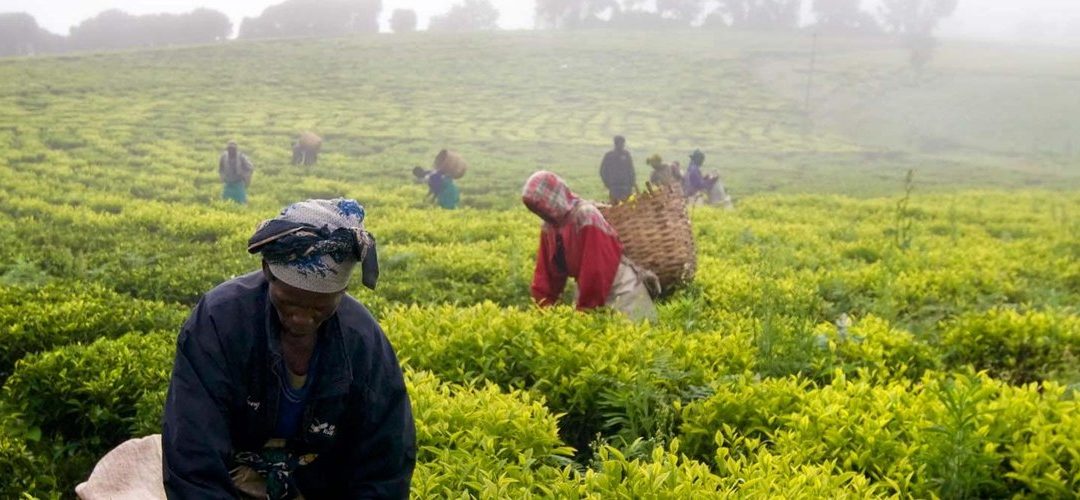ICT and Agriculture have been cited as the leading host sectors for Micro, Small and Medium-sized Enterprises (MSMEs) in Kenya, in the 2021 MSMEs Survey Report .
The survey was conducted by the KBA Centre for Research on Financial Markets and Policy® in collaboration with the Japan International Cooperation Agency (JICA) in May this year, further indicates over 90 percent of the 279 MSMEs sampled were registered, signaling a high level of formalization.
The report, released on Tuesday 29th June 2021, also ranks manufacturing and construction among the dominant hubs for the enterprises that collectively create an estimated 15 million employment opportunities in the economy. Meanwhile, over half of the businesses were fully incorporated, with 35 percent of them running as sole proprietorships.
The report indicated that most of the enterprises (80 percent) operate a bank account in their business name, while the rest (20 percent) use personal accounts,’ highlighting a narrow distinction between borrowing for business and personal needs. The report also reveals that 54 percent of the enterprises seek personal loans while 46 percent obtain credit for business support.
The survey comes amid efforts to support MSMEs in light of the COVID-19 pandemic. ‘’At a time when economies worldwide and more so our domestic economy continue to be characterized by fragility and substantial slack due to the COVID-19 pandemic and its containment measures, any conversation on economic recovery in a sustainable way must be centered on strengthening the MSMEs sector, ‘’ said KBA Chief Executive Officer Dr. Habil Olaka.
JICA Kenya Chief Programs Officer, Anne Olubendi, highlighted the need to support MSMEs. ‘’MSMEs are more generally seen as accelerating the achievement of wider socio-economic objectives, including poverty alleviation. Their ability to grow highly depends on their potential to restructure and innovate. All these investments need capital and hence access to finance,’’ she said.
Access to MSME start-up capital remains limited. Only 22 percent of the enterprises reviewed reporting having applied for start-up loans, out of which only 9 percent were from banks; own savings (64 percent) and non-loan support from family and friends (12 percent). While 83 percent of the MSMEs reported having had their loan applications approved within three months, 49 percent said their borrowing from the different credit providers required collateral.
‘’In terms of employment patterns that define the size of the enterprise, most of the businesses surveyed are micro, with 85 and 87 percent having less than ten full-time and part-time employees, respectively,’’ said KBA Research and Policy Director Dr. Samuel Tiriongo. He added: ‘’Only 9 percent of the enterprises are small (10-49 full-time employees), and 6.4 percent are medium-sized (50-99 full-time employees).’’
On utilization of both formal and informal financial instruments, most of the enterprises have or have previously operated a savings account, with only 29 percent not having had a savings account before.
The survey, administered online from 7th to 21st May 2021, targeted MSMEs under the Kenya Bankers Association Inuka Enterprise Program. The initiative, which aims to de-risk MSMEs and facilitate access to formal credit, has so far reached over 12,000 businesses.
The survey comes amid efforts to support MSMEs in light of the COVID-19 pandemic.
Commenting on the report, KBA Chief Executive Officer Dr. Habil Olaka, said, ‘’At a time when economies worldwide and more so our domestic economy continue to be characterized by fragility and substantial slack due to the COVID-19 pandemic and its containment measures, any conversation on economic recovery in a sustainable way must be centered on strengthening the MSMEs sector”.
JICA Kenya Chief Programs Officer, Anne Olubendi, highlighted the need to support MSMEs.
‘’MSMEs are more generally seen as accelerating the achievement of wider socio-economic objectives, including poverty alleviation. Their ability to grow highly depends on their potential to restructure and innovate. All these investments need capital and hence access to finance,’’ she said.
Access to MSME start-up capital remains limited. Only 22 percent of the enterprises reviewed reporting having applied for start-up loans, out of which only 9 percent were from banks; own savings (64 percent) and non-loan support from family and friends (12 percent). While 83 percent of the MSMEs reported having had their loan applications approved within three months, 49 percent said their borrowing from the different credit providers required collateral.
‘’In terms of employment patterns that define the size of the enterprise, most of the businesses surveyed are micro, with 85 and 87 percent having less than ten full-time and part-time employees, respectively,’’ said KBA Research and Policy Director Dr. Samuel Tiriongo. He added: ‘’Only 9 percent of the enterprises are small (10-49 full-time employees), and 6.4 percent are medium-sized (50-99 full-time employees).’’
